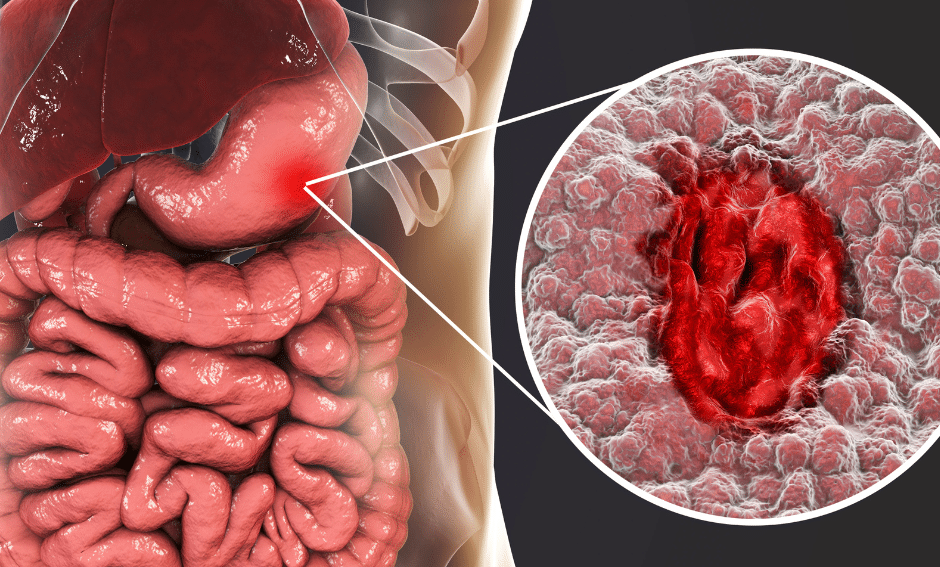What You Need to Know About NASH

What is NASH?
NASH is an acronym for nonalcoholic steatohepatitis, which is when your liver is inflamed or damaged from an abnormal build-up of fat within this vital organ. In the medical field, NASH is also considered to be a “fatty liver disease.” Surprisingly, many people have a fatty liver, but experience no symptoms or issues. In other cases, the build-up of fat in the liver can cause inflammation and severe damage to your liver cells. Due to the impairment from the damage, the liver cannot function properly, putting your health at risk. More than 3 million cases of NASH are reported each year in the United States. Continue to read to learn more about NASH symptoms, causes, and diagnosis.
What are the Symptoms of NASH?
NASH is very harmful yet relatively silent disease, meaning that the majority of people who have NASH may have it for years without experiencing any symptoms. When symptoms are present, they can include an increase in fatigue and weakness, unexpected weight loss, or pain in the upper right section of your belly. NASH can lead to more serious health conditions, such as advanced fibrosis, cirrhosis, liver failure, or liver cancer. If you suspect that you may have NASH, a quick diagnosis will allow your healthcare provider to create a comprehensive care plan to prevent your health from worsening.
What are the Causes of NASH?
NASH is associated with obesity, diabetes and insulin resistance, and can be specified as the liver manifestation of the metabolic syndrome. Development of NASH is often influenced by certain conditions or lifestyle choices, such as high levels of fat in the blood, high blood pressure, obesity, poor eating habits, or certain medications. Researchers have also suggested that NASH may be a hereditary disease as well. The majority of individuals who have NASH are 40 to 50 years of age and may not necessarily have any of these risk factors. Those who do have the risk factors of NASH should be aware of the symptoms of the disease and stay conscious about their health by making positive lifestyle choices.
NASH Diagnosis and Treatment
One of the newest methods for diagnosing NASH is the FibroScan, an innovative tool that tests for NASH without invasive methods or the need to visit a major medical center. A FibroScan tests the elasticity of the entire liver, and if NASH is detected, your doctor will create a management plan for you before the disease worsens. Aside from a FibroScan, your doctor may recommend certain blood tests, and a liver biopsy may be performed to extract a sample of your liver tissue to further confirm if you have NASH. At this point in time, no standard treatment exists for NASH. Management of this condition often includes lifestyle changes such as weight loss, which can help reduce the amount of fat in the liver. Other lifestyle changes may include reducing your cholesterol level, controlling diabetes, cutting back on alcohol, and getting regular exercise. Researchers have also been looking into medications that may be used by individuals with NASH in the future.
Detect NASH at Digestive Healthcare Center Today
Since NASH is a silent and harmful disease with the potential to worsen over time, it is critical to stay on top of your liver health. At Digestive Healthcare Center, our team of expert gastroenterologists is here to provide the best care and treatments for all patients, no matter what gastroenterological condition you may be facing. We are proud to be one of the only gastrointestinal health facilities in central New Jersey to offer FibroScan testing. To learn more about NASH, FibroScan, or the other procedures we offer, please contact us today. We encourage you to visit our offices in Hillsborough, Somerville, or Warren for an appointment, or schedule a telemedicine appointment to speak with one of our qualified physicians at Digestive Healthcare Center.
Make an Appointment for Comprehensive Digestive Care in NJ
At Digestive Healthcare Center, we want each patient at our three offices in New Jersey to feel confident about their digestive health. We encourage you to contact us today to make an appointment with one of our expert gastroenterologists – don’t wait to start putting your digestive health first!
Recent Blogs
Learn more about all things digestive health and wellness by checking out our recent gastroenterology blogs.

Infusion therapy has become a vital treatment option for individuals with Crohn’s disease, offering relief when traditional medications may fall short. This method delivers medication directly into the bloodstream, providing quicker and more targeted effects to help manage inflammation, reduce symptoms, and improve quality of life. For those with moderate to severe Crohn’s disease, infusion […]

The Advancement of Ulcerative Colitis Treatment Ulcerative colitis (UC) is a chronic inflammatory bowel disease (IBD) that affects the lining of the colon and rectum. Those diagnosed with UC often experience flare-ups that can significantly impact their quality of life. Fortunately, advancements in medical treatment have made managing this condition more achievable. One option is […]

Diverticular disease and diverticulitis are related digestive health conditions that affect the large intestine (colon). With diverticular disease, small, bulging pockets develop on the lining of the colon. When these pockets become inflamed or infected, the condition is called diverticulitis. They are very common – especially after age 40 – and rarely cause problems. At […]
























